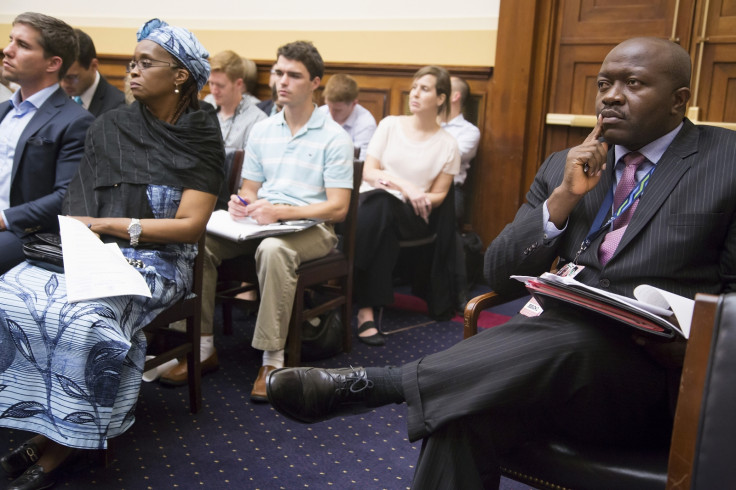Ebola Outbreak: Healthcare Crumbling in Africa as Residents Start Dumping Bodies in Streets

The crisis in African nations hit by Ebola is worsening with the health care system collapsing.
The number of trained doctors and nurses is shrinking as medical workers get infected or fail to report to work due to fear of contracting the deadly disease.
"People are dying from common diseases because the health care system is collapsing," Liberia's Minister of Foreign Affairs Augustine Kpehe Ngafuan told Reuters.
The country battling civil war entered the epidemic with only about 50 doctors for four million people, he said.
In a separate interview, Sierra Leone's Foreign Minister Samura Kamara said, "This is a disease that is beyond the capacity of the three national governments. We need greater international awareness and support and it should be considered a global health crisis that needs a global response."
Liberian medical chiefs warned that their health service was being overwhelmed by the Ebola outbreak as reports emerged of residents dumping bodies of suspected victims of the virus in the streets.
Nema Red, a resident of Clara Town, said the two men who lay dead in the street for days had shown symptoms of Ebola such as bleeding and vomiting.
"They started seeking help from the community to take them to the hospital, but community members ran for their lives ... they both gave up and dropped dead on the ground in the streets."
Tolbert Nyenswah, the deputy chief medical officer and assistant health minister, said the outbreak had forced a number of hospitals and clinics to close due to paucity of staff. With 67 health workers infected, many of the remaining 6,000-strong work force were reluctant to return to their jobs.
Dr Frank Glover, the president of SHIELD, a health organisation working in Liberia, said if nothing more is done, deaths in Liberia could hit thousands.
Nurses wary of signing 'death warrant'
In Nigeria too, the death of a nurse has led to a scare among the community. The National Deputy President of the National Association of Nigerian Nurses and Midwives Mr Olufemi Rasheed Tonade has said nurses are not ready to sign a death warrant.
"As leaders in the sector, we will not allow government deceive anybody that they have equipment. We believe that if government cannot resolve basic health needs, how can it tackle the Ebola virus, which is a very serious health hazard that has shut down the whole Liberia and about to shut down other West African countries."
Ken Isaacs, the vice president of Programs and Government Relations at the relief organisation Samaritan's Purse expects a spike in the disease in Nigeria, followed by a three-week quiet and then a huge return of the disease. "When it comes out, it will come out in a fury," he said.
US funds for Sierra Leone hospital stopped
Meanwhile the US decision to stop funding for a major research project into Lassa fever will indirectly affect a facility in Sierra Leone that is at the forefront of the current battle against the Ebola virus.
The funds will hit the facility, at Kenema Government Hospital, which was set up a decade ago to test and treat Lassa fever. Now it is being used to treat patients stricken with Ebola.
© Copyright IBTimes 2024. All rights reserved.





